Rio Olympics 2016: How Max Whitlock made his teenage dream reality
- Published
Once the merriment and revelry of London 2012 had dimmed, and the country had returned to focusing on the routine, Max Whitlock held a meeting with his coach Scott Hann.
It was during that one-on-one talk that the boy from Hemel Hempstead said he wanted to be a great, wanted to be remembered, wanted to inspire a nation.
It was a stirring speech from the winner of two bronze medals at his home Olympics. It excited Hann, it roused him. It was the start of their journey to Rio, to double Olympic gold, to history.
"I asked if he wanted to be just a pommel horse specialist," remembers Hann. "He said, 'I want to be an all-around gymnast and I want to be one of the world's greatest. I don't want to be a flash in the pan.' That inspired me."
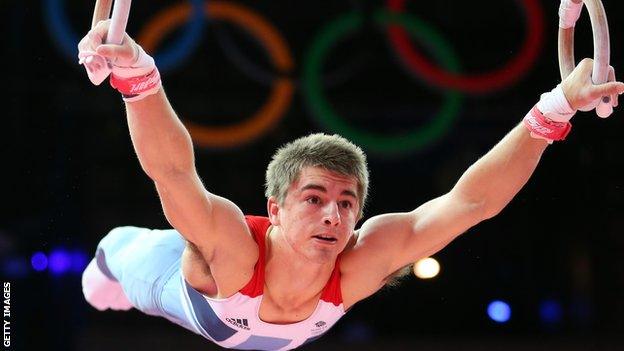
GB's men's gymnastics team had not won a medal since 1912 when Whitlock helped them to bronze at London 2012
The pair shunned big-money competitions, World Cups and stage events, as Whitlock dedicated himself to his sport so, on a glorious Brazilian Sunday afternoon, the boy who dreamed big could fulfil his teenage ambition.
Whitlock, who ended a 116-year wait for a British gymnastics Olympic champion, would have been celebrated had he won once at the Olympic Arena, but he did it twice - on the floor and pommel horse - and did it coolly and with flair.
Britain has never produced a gymnast of Whitlock's calibre, but then there has been no-one quite like the quiet, single-minded 23-year-old who dazzles through actions rather than words.
British team-mate Dan Keatings has known Whitlock since he was seven and remembers him as the boy who did "amazing" things on the pommel horse.
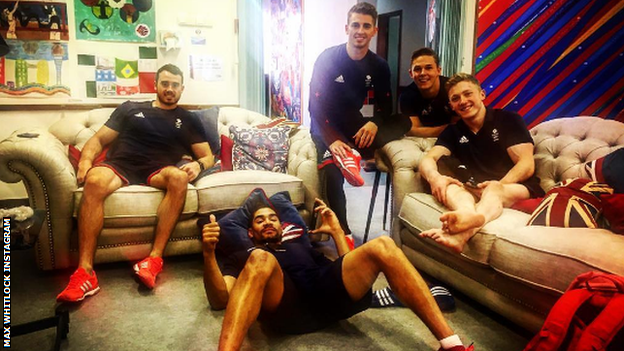
Whitlock posted this picture on Instagram of him and his team-mates
Keatings and Louis Smith, the double Olympic pommel horse silver medallist and pioneer of his craft, were Britain's leading lights on the apparatus, but knew there was a special talent in their slipstream.
"In the gym he's quite quiet, gets his head down, but you notice he's there because of the amazing stuff he's doing," says Keatings, the 2009 world all-around silver medallist.
"He puts everything into this sport. He makes sure he gets the right amount of sleep every single night without fail. I don't think he's had an alcoholic drink this year.
"He works harder than everyone else in the gym. He doesn't seclude himself, he'll be involved in every group activity that we do, but he sits in the background while he's working away.
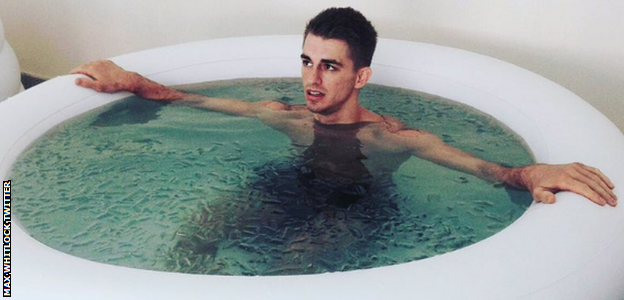
Recovering in an ice bath in Rio
"He does the absolute most to make sure he's at his best in the gym, hence he's Olympic champion. He's an amazing character. In training he'll be having more goes than everyone else. Usually us gymnasts have a go on a piece of apparatus, which will take 30 seconds, take a rest and do it again. Some will rest for two minutes, he'll rest for one, so he's having two goes to everyone else's one. He's dedicated and determined."
Whitlock's story isn't a tale of an uninterrupted rise to the top. In the spring of last year the Englishman's powers were waning as his muscles weakened and his coordination failed him. He isn't the sort to anger quickly, says his coach, but this "hit him hard".
With just a year and a half until the Olympics, the gymnast who had known only of excellence since the age of seven could not accomplish routine twists and tricks. In one training session, on the parallel bars, he nearly landed on his head, while any training routine longer than 30 seconds was beyond him.
The illness which had completely drained the three-time Commonwealth gold medallist was glandular fever, its gravity hidden from the media, its effects still lingering.
"We've tried to hide how ill he was," says Hann.
"Even now, to this day, we've had to adjust training to make sure we don't overdo it because he's not quite back to what he used to be."
While it was glandular fever that debilitated Whitlock, he says it was the viral infection that pushed him to further success. The medals back up the Essex-based gymnast's claim because since recuperating and recovering, Whitlock has become the first British man to win a world gymnastics title, and is now the first to win Olympic golds.
He is the owner of 24 major medals, five of which have been won at the Olympics. He is the equal of Sir Ben Ainslie and three adrift of Sir Bradley Wiggins' record Olympic haul of eight. He is keeping company with knights of the realms, the greatest of British sporting greats, and that is what he has always wanted.
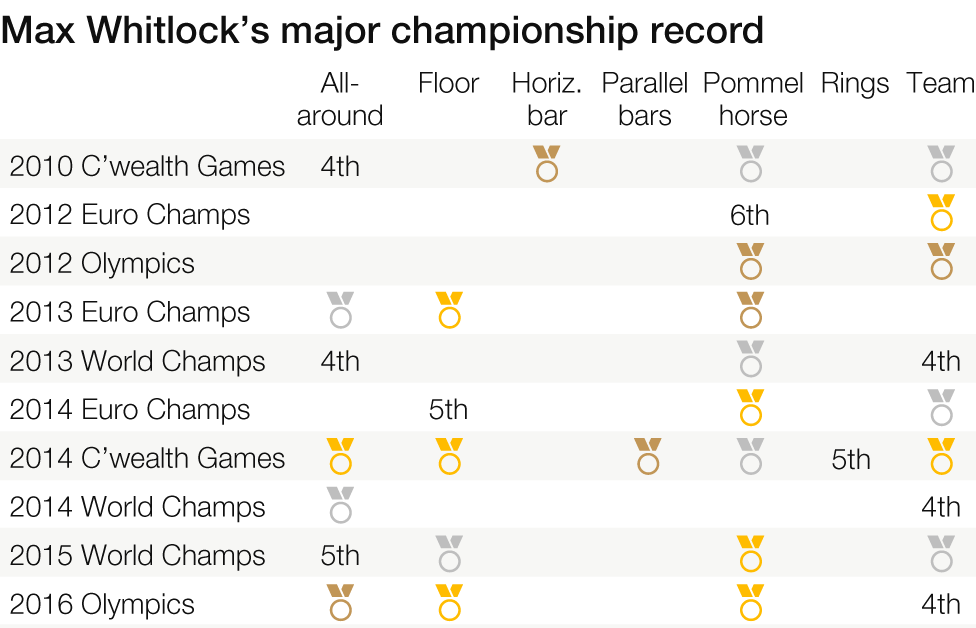
When asked by a journalist whether he was prepared for the inevitable life-changing impact of his never-to-be-forgotten feats, Whitlock puffed out his cheeks and looked down. He could not answer. The magnitude of his achievements had yet to sink in.
But the world and Olympic champion is not the sort to be alarmed or frightened by the consequences of continued historic triumphs.
While Smith talked on Sunday of taking a year out from the sport, to make more money and further boost his profile, Whitlock is unlikely to follow his team-mate down the path towards reality TV.
"He's got a good representative looking after him," says Hann. "Max's personality is very calm, he's humble. He's a really lovely, chilled-out guy. I think he'll be able to handle it no problem at all, though I'm not sure if he realises at this moment how much this could possibly change his life."

Max Whitlock tweets a picture of himself appearing in an advertising campaign in Tokyo
Whitlock is an ad man's dream, an athlete whose star is constantly rising. He is a clean-living boy, who will marry his fiancee next year, and has a flair for design and numerous party tricks - one a back flip with a football between his feet, directing the ball into an open boot of a car.
Last year he was chosen by British designer Paul Smith to be the face of a new advertising campaign, and videos of him pivoting and rotating in expensive designer clobber were projected onto Tokyo skyscrapers. Whitlock likes taking part in slick advertising campaigns and, after winning pommel horse gold at last year's World Championships, said he enjoyed being recognised. More adoration and big businesses will come his way, but on a level he has never experienced before.
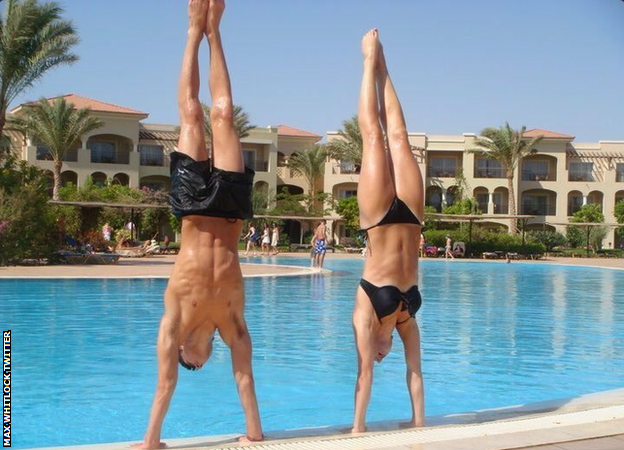
Celebrating national handstand day with fiancee Leah Hickton
Keatings, who celebrated with Whitlock on Sunday, believes his friend "will be fine".
"He was world champion last year, so he's had a taste of it and it's prepared him for what's to come, although that will be nothing of this magnitude," says Keatings.
Whitlock will enjoy the rewards that come his way and says his double gold makes him feel complete. He has fulfilled the goals he set for himself four years ago - to inspire a nation and be remembered. "He'll be remembered in gymnastics history for a long, long time," says Keatings.
But one day the celebrating will be put to bed and, just as he did after his surprise bronze medals at London 2012, he will set new targets and aim to further his greatness, because that is what history-makers do.
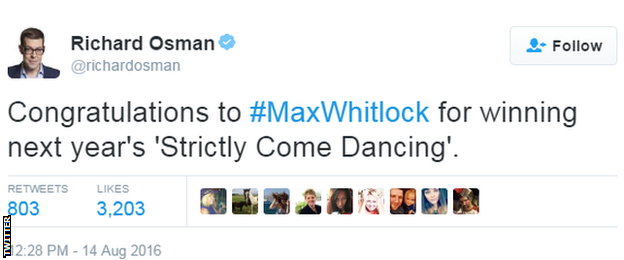
Pointless presenter Richard Osman joked Whitlock's next career move could be the popular BBC One show
- Published15 August 2016
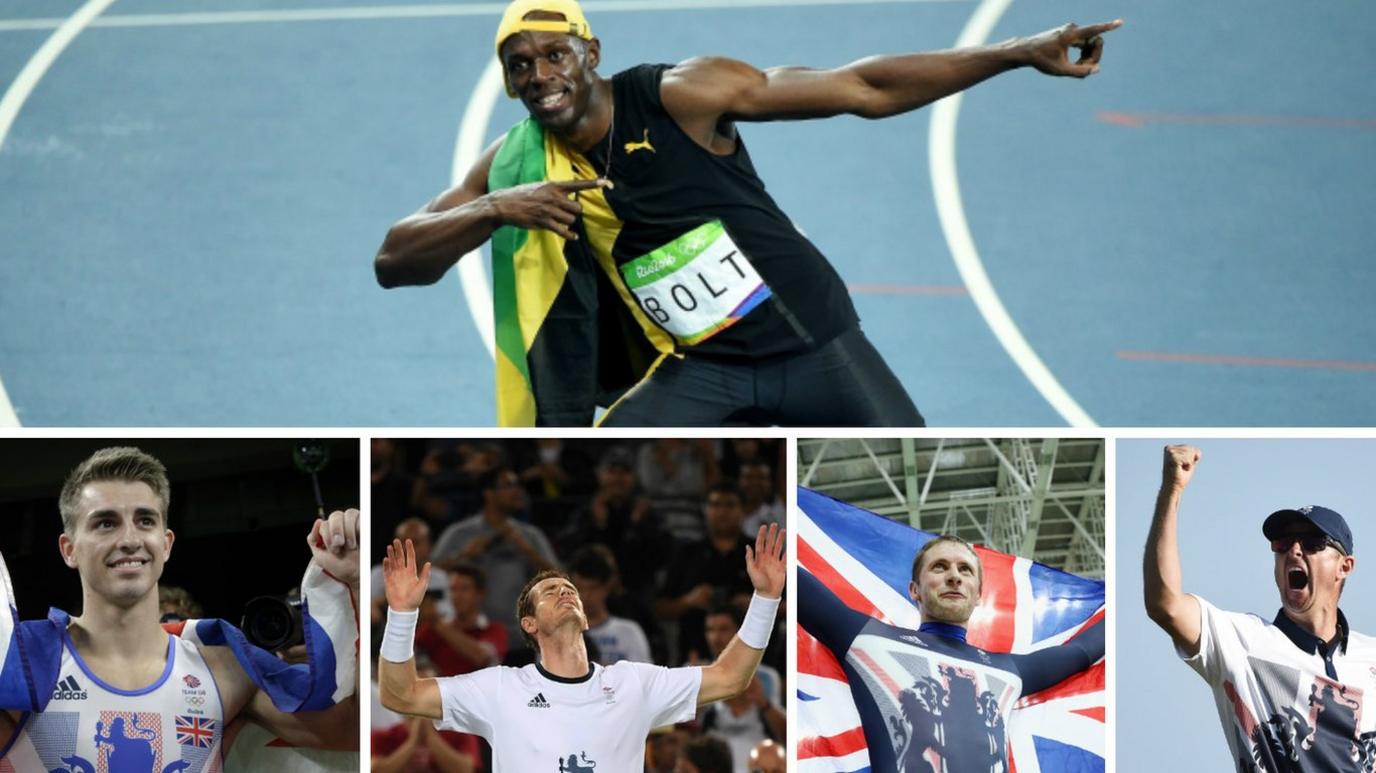
- Published14 August 2016
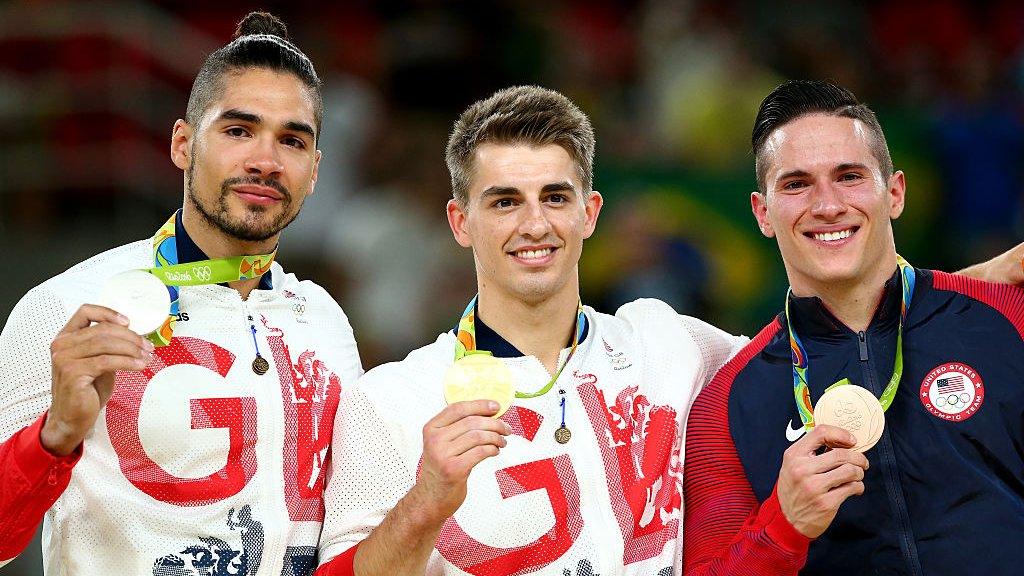
- Published14 August 2016
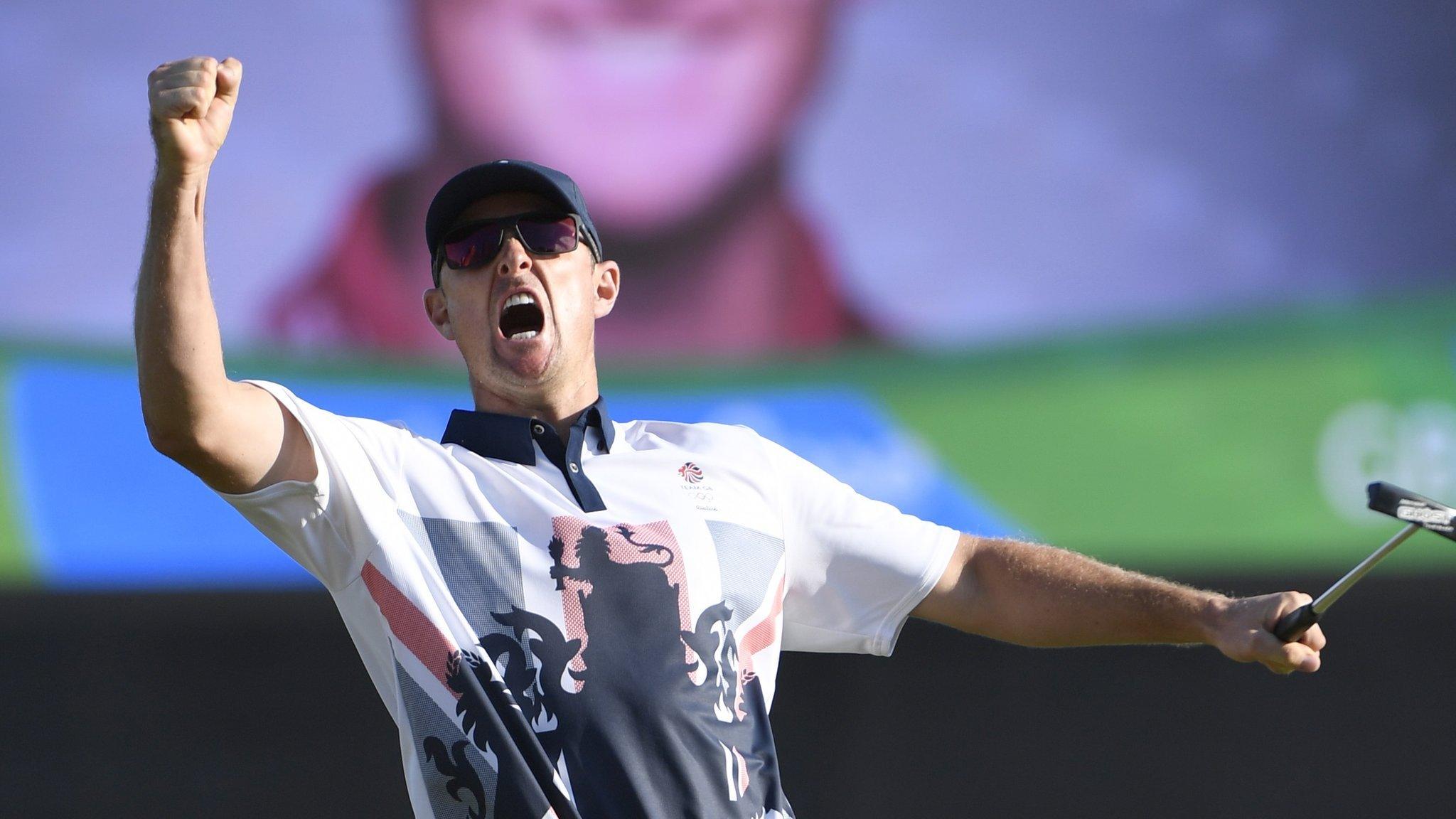
- Published15 August 2016
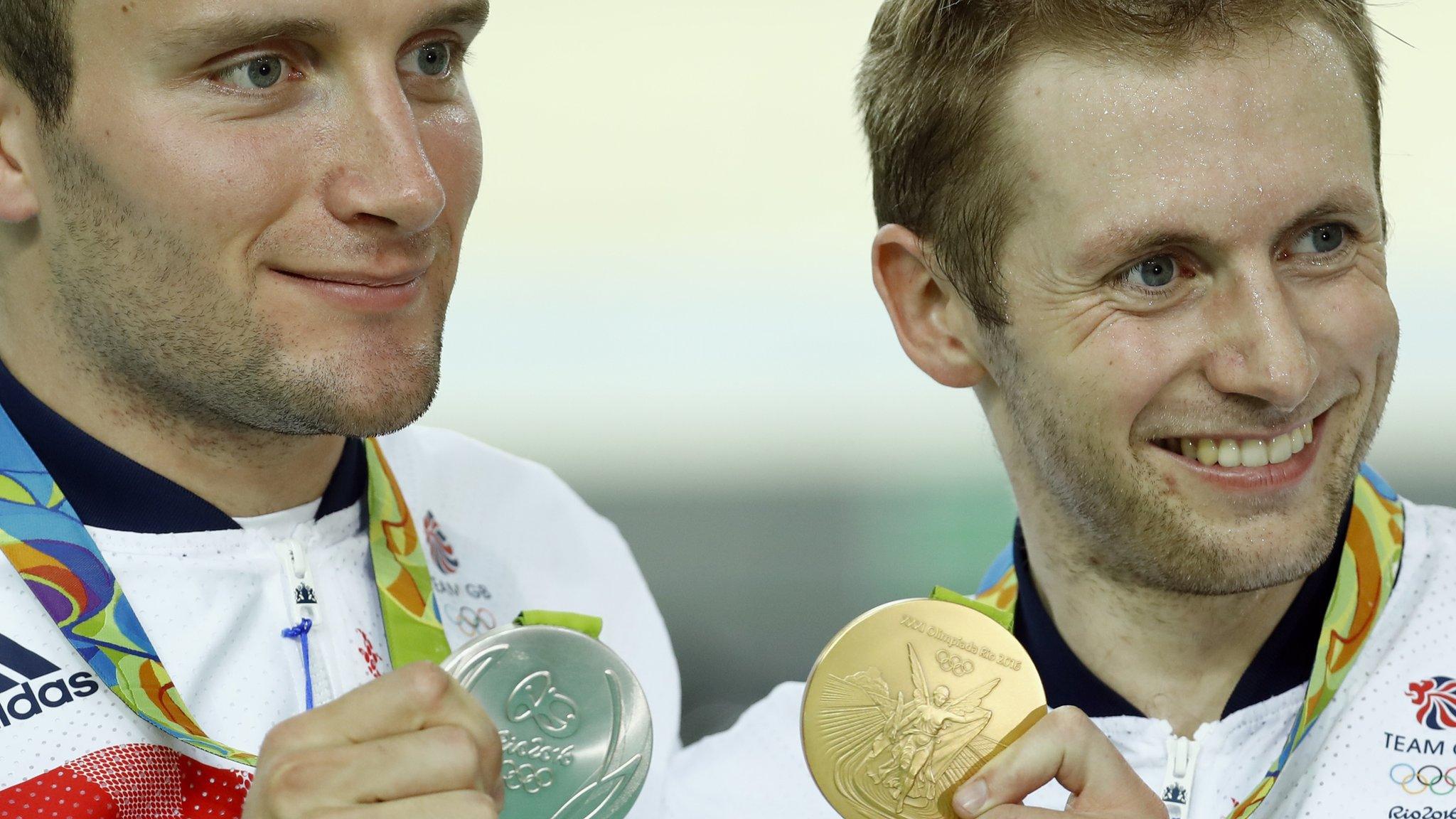
- Published15 August 2016
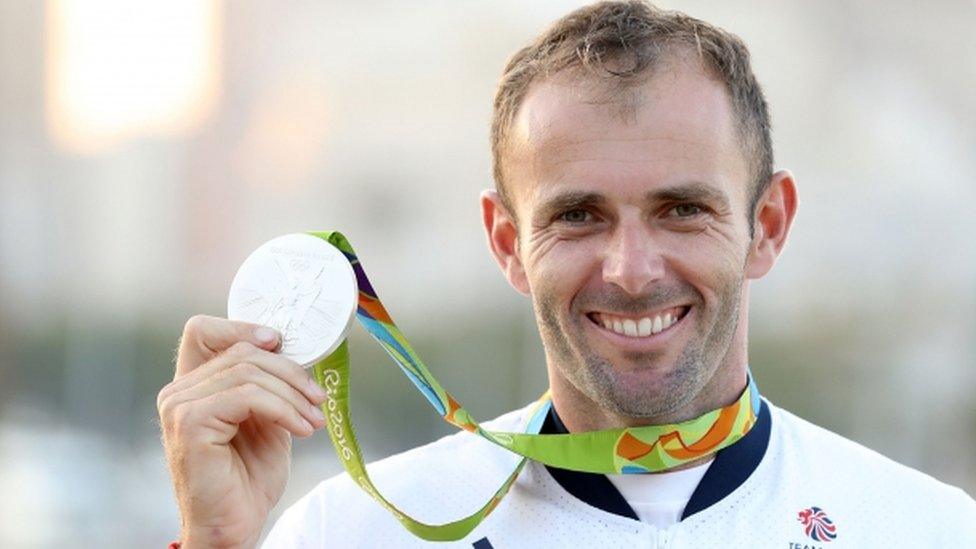
- Published14 August 2016
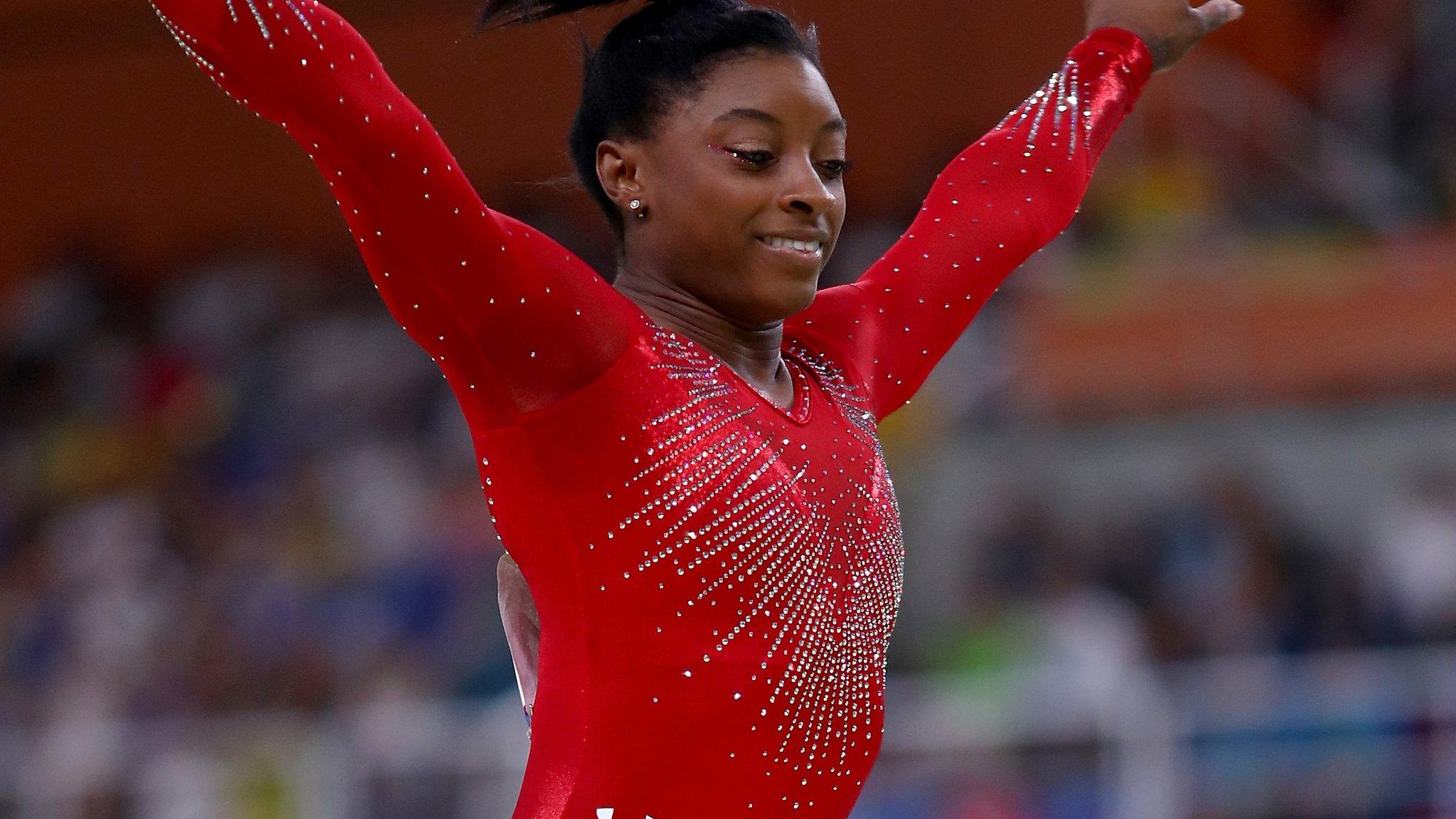
- Published18 August 2016

- Published3 August 2016

- Published19 July 2016
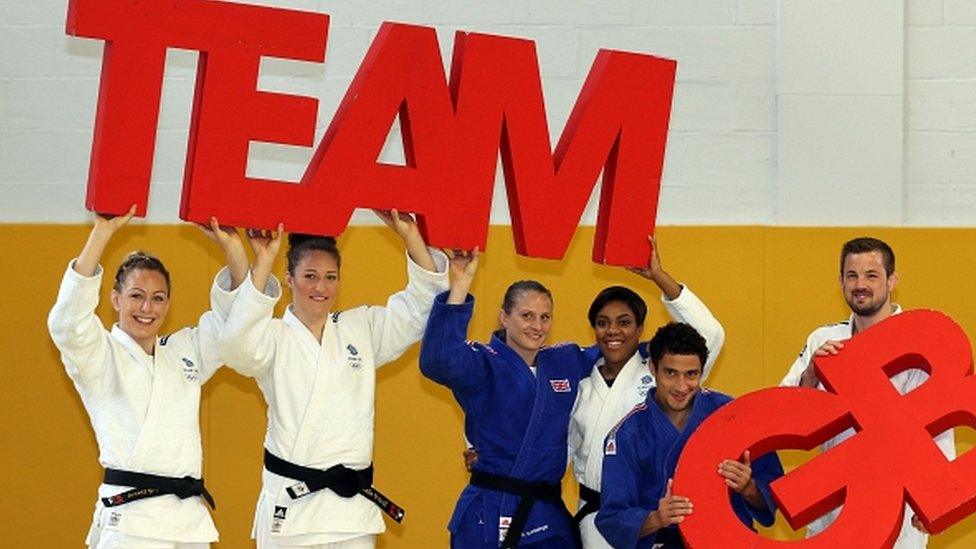
- Published3 August 2016
